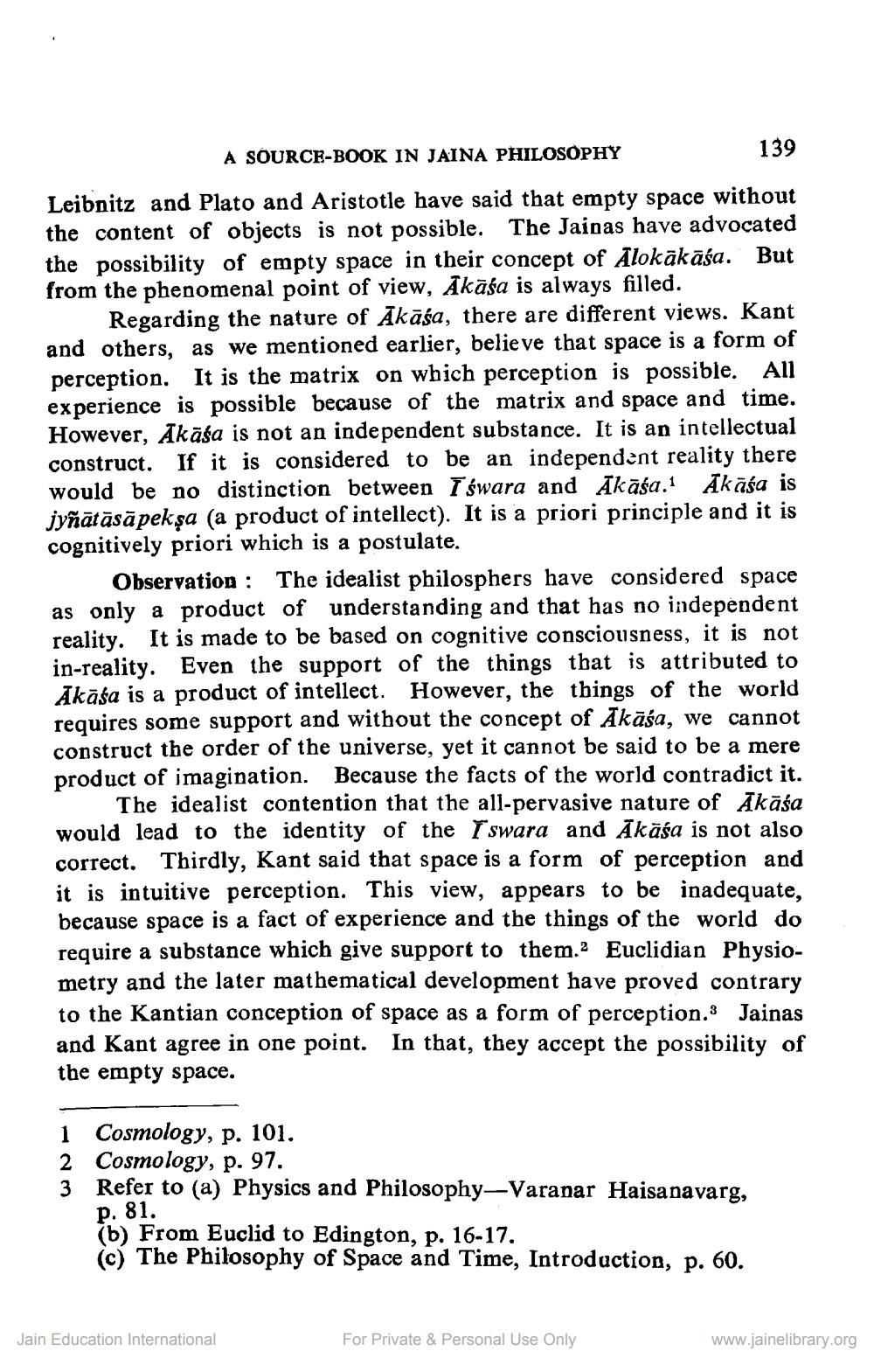________________
A SOURCE-BOOK IN JAINA PHILOSOPHY
Leibnitz and Plato and Aristotle have said that empty space without the content of objects is not possible. The Jainas have advocated the possibility of empty space in their concept of Alokākāśa. But from the phenomenal point of view, Akāśa is always filled.
Regarding the nature of Akāśa, there are different views. Kant and others, as we mentioned earlier, believe that space is a form of perception. It is the matrix on which perception is possible. All experience is possible because of the matrix and space and time. However, Akāśa is not an independent substance. It is an intellectual construct. If it is considered to be an independent reality there would be no distinction between Tswara and Akāśa.1 Ākāśa is jyñātāsāpekṣa (a product of intellect). It is a priori principle and it is cognitively priori which is a postulate.
Observation : The idealist philosphers have considered space as only a product of understanding and that has no independent reality. It is made to be based on cognitive consciousness, it is not in-reality. Even the support of the things that is attributed to Akāśa is a product of intellect. However, the things of the world requires some support and without the concept of Akāśa, we cannot construct the order of the universe, yet it cannot be said to be a mere product of imagination. Because the facts of the world contradict it. The idealist contention that the all-pervasive nature of Ākāśa would lead to the identity of the Iswara and Akāśa is not also correct. Thirdly, Kant said that space is a form of perception and it is intuitive perception. This view, appears to be inadequate, because space is a fact of experience and the things of the world do require a substance which give support to them.2 Euclidian Physiometry and the later mathematical development have proved contrary to the Kantian conception of space as a form of perception. Jainas and Kant agree in one point. In that, they accept the possibility of the empty space.
1 Cosmology, p. 101.
2 Cosmology, p. 97.
3 Refer to (a) Physics and Philosophy-Varanar Haisanavarg,
3
p. 81.
(b) From Euclid to Edington, p. 16-17.
(c) The Philosophy of Space and Time, Introduction, p. 60.
Jain Education International
139
For Private & Personal Use Only
www.jainelibrary.org




